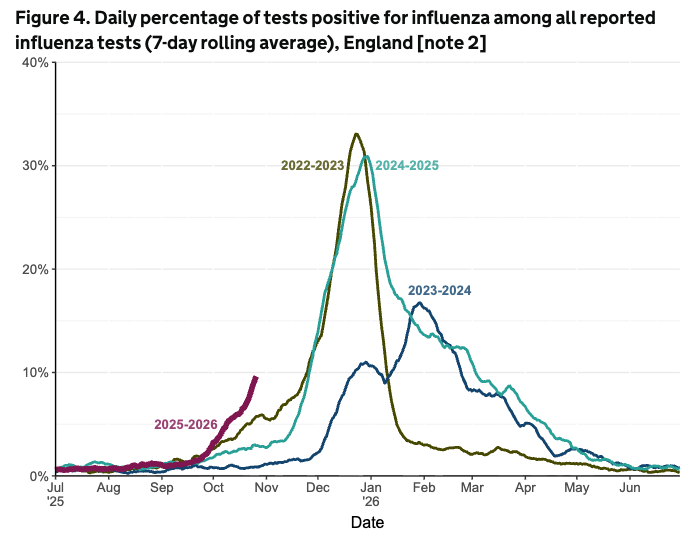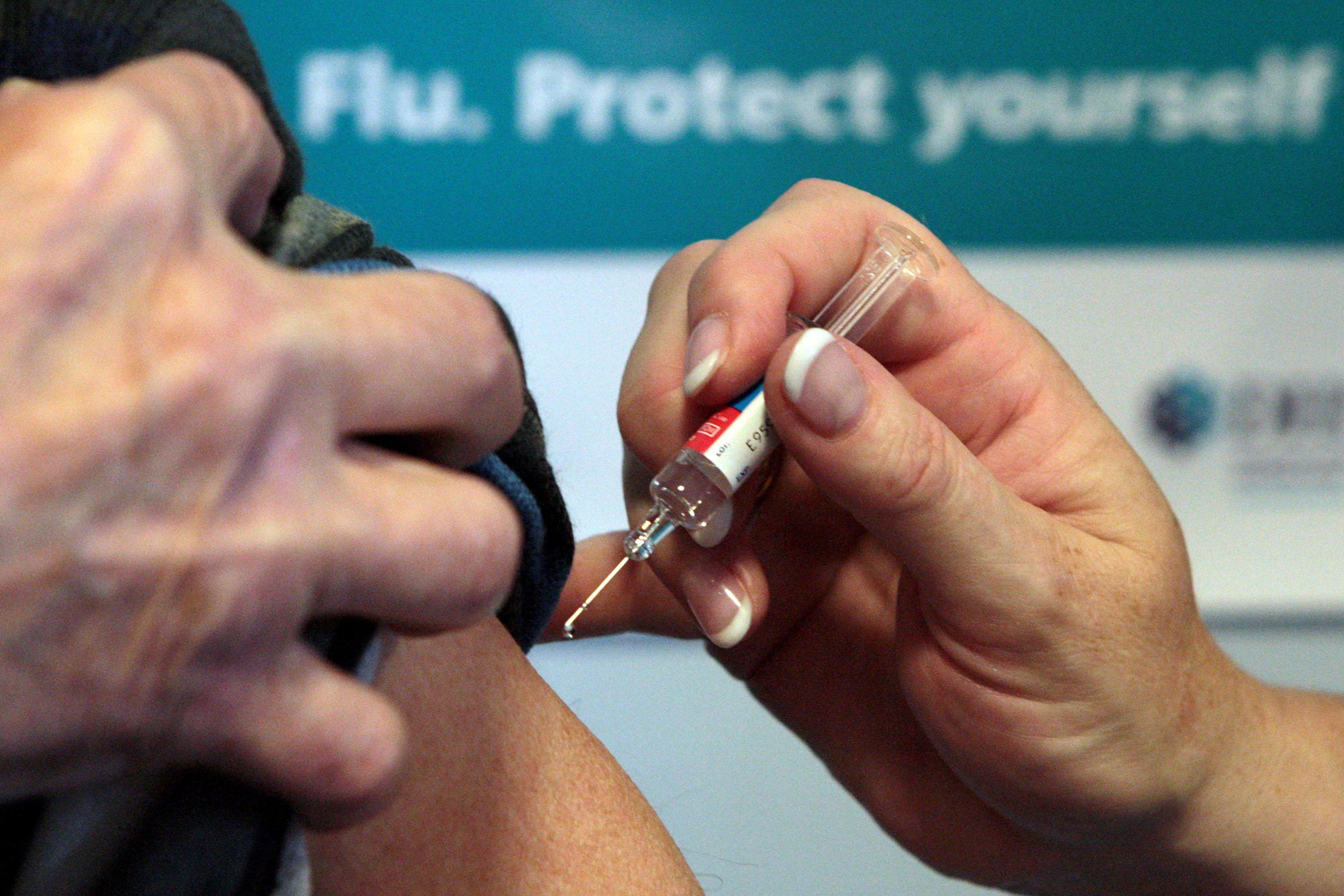We are closing in on that time of year when coughs and colds are rampant and everyone appears to be getting ill.
But health experts are warning this winter could see the most severe flu outbreak in decades as a new strain threatens to wreak havoc on the NHS.
The H3N2 strain has been labelled as “unpleasant” by health bosses, who have warned hospital admissions are already rising with the flu.
While not yet at a peak, admissions are rising at a rate not typically seen until December, with experts concerned that many of the most vulnerable may not have received their vaccine yet.
With cases on the rise, The Independent spoke to Dr Giuseppe Aragona, GP and medical adviser for Prescription Doctor, about how worried we should be over H3N2 and how to prevent it.
What is the H3N2 strain?
H3N2 is a strain of the influenza virus that is recognised as one of two widely circulating strains. Also known as subclade K, it is currently the most dominant strain in England, according to the UK Health Security Agency (UKHSA).

Dr Aragona explained that the letters and numbers refer to the virus’s surface proteins, haemagglutinin (H) and neuraminidase (N).
He said this particular combination can sometimes cause more severe illness, especially in older people or those with underlying health conditions.
“H3N2 changes regularly, so the version of the virus circulating this year may be different from previous years or from the one in the seasonal vaccine, which can make people more susceptible,” he added.
How high are the flu rates at the moment?
Latest figures showed that the rate of hospital admissions for flu in England stood at 3.8 per 100,000 people last week, up from 2.4 the previous week, according to data published by the UKHSA.
While this is well below the peaks reached in recent years, it is a level of admissions usually not reached until next month. Experts say this is evidence that the current flu season has started “unusually early”, and we could be bracing for a particularly difficult winter.

It also follows the biggest flu season in Australia’s history, which is often seen as an accurate predictor of what the UK can expect.
Why is H3N2 so bad this winter?
Dr Aragona said there are a few different reasons why flu is expected to be particularly bad this winter.
Firstly, he explained that the flu season has started earlier than usual, which gives the virus more time to spread.
He added it has also “evolved” from the strain last year, meaning previous immunity or even the vaccine may offer less protection than usual.
“Fewer people have been exposed to flu in recent years, especially children, which leaves more people vulnerable,” he said. “On top of that, colder weather, indoor mixing, and social habits all contribute to faster transmission, creating the perfect storm for higher flu rates.”
Earlier this week, experts warned that the strain developed seven new mutations over the summer, meaning it is quite different from the previous strain included in this year’s vaccine.
The UK is braced for a spate of flu deaths this winter, with NHS leaders issuing a “flu jab SOS” urging people to get protected.
How can you prevent yourself from getting the flu?
Dr Aragona said the “most effective” way to protect yourself from H3N2 is to get the flu vaccine – especially if you are in a “higher-risk group” such as over 65, pregnant, very young, or living with a long-term health condition.
“The vaccine may not prevent every infection, but it significantly reduces the risk of severe illness and hospitalisation,” he said.

Dr Aragona added that protection can be improved by maintaining good hand hygiene, covering your mouth and nose when coughing or sneezing, avoiding close contact with ill people, and keeping your home well-ventilated.
New data published by the UKHSA this week shows the 2025-2026 vaccine is currently 70 to 75 per cent effective at preventing hospital attendance in children aged two to 17 years, and 30 to 40 per cent effective in adults.
Dr Jamie Lopez Bernal, consultant epidemiologist for immunisation at UKHSA, said the results provide “reassuring evidence” that the season’s flu vaccines can offer important protection despite concerns about the new subclade.
He “strongly encouraged” everyone eligible to take up their flu vaccine “as soon as possible”, calling it the “best defence” against serious illness.
Dr Thomas Waite, deputy chief medical officer, said: “Flu can be an unpleasant infection for many and life-threatening for some; vaccination is the best form of defence.
“Early data from the UKHSA shows this year’s vaccine is continuing to provide good protection against flu variants circulating this year. The flu season has started early this year. Now is the time to get vaccinated if you are eligible.”
How worried should we really be about H3N2?
Dr Aragona said while flu can be “unpleasant” for most healthy adults and children, he warned against panic as it is usually “manageable”.
“However, for older people, those with chronic illnesses, and other vulnerable groups, H3N2 can be serious, and this season may place extra pressure on the health service due to the early start and the strain’s characteristics,” he said.
“The important thing is to be vigilant: get vaccinated, take sensible precautions, and seek help early if symptoms become severe. With these steps, the risk can be managed effectively, even in a year when flu is circulating more widely.”




